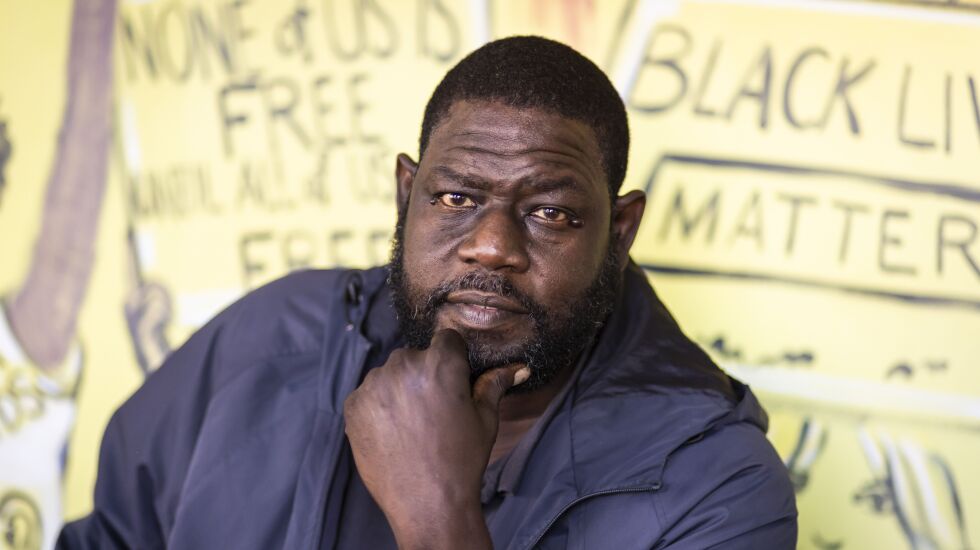
Born and raised in West Garfield Park, Marcus “Moon” Mitchell remained a high-ranking gang member into his 40s before he was recruited to work for a community violence intervention group. Now he’s in charge of outreach workers for the Institute for Nonviolence Chicago.
Mitchell’s teams recruit active gang members — mostly men in their 20s and 30s who are nearly 50 times more likely to be shot or to shoot someone than the average Chicagoan. Some of Mitchell’s staffers have been shot on the job. More than a few program participants have been killed as they tried to change their lives.
Marcus “Moon” Mitchell, 49
Outreach and intervention manager, Institute for Nonviolence Chicago
Growing up in West Garfield Park in the 1970s and ’80s was fun. It was love. We played a lot of sports. We played football, baseball, basketball. It was a different atmosphere from now.
I jumped off the porch in about 1987, seventh or eighth grade. My oldest brothers were Unknown Vice Lords. When I came up, (the Unknowns) was Four Corner Hustlers, so I became a Four Corner Hustler.
When I was 13, I was making a few thousand dollars every other day. I wound up buying a car when I turned 14. I would go and ride it and park it and walk home so my parents wouldn’t see it and ask questions. ...




By the time I was about 44, I was still hustling and doing my thing, but I just got tired of that rigamarole. The game was changing. There was a lot of snakeism going on, where people back door you. People you think are your friends wind up being your enemies. ...
Right before I came into the program, I caught a dope case. I had to pay a lawyer $8,500 to make $250 (selling drugs). It didn’t add up, the risk and the reward.
A lot of (gang members) don’t want to be doing what they do. But they are embarrassed, they’d be ashamed that they don’t know something. So instead of asking and learning, they’d rather go without.
Their life is isolated. They can’t go on this block or that block, because of territory. You have some of these guys, they haven’t even been downtown. They haven’t been to the movies. They haven’t been to the beach. ...
I tell the young men, ‘Look at me. I once was where you’re at, and now I live just as good as you, but you’re doing something illegal. I don’t have to watch behind my back.’
We had a Delano (Elementary School) reunion over Labor Day weekend. We needed it to happen. We needed to show those young people that love we used to have. (Delano was closed in 2014.)
You had ex-gang members, ex-ballplayers and everybody that turned out to be teachers, plumbers, electricians, activists. You’ve got it all. I wanted them young fellas to see that.
But if we had 300 people out there, 220 of them don’t live in the neighborhood no more. ...
I think if we keep bringing these resources in the neighborhood and give these young men these opportunities, they’ll take advantage of them.











